8 Key factors influencing Localization cost
The localization industry has always had a reputation for being opaque with prices, a black box.
It has never been very clear how much translation costs. There is usually a different perception of reality regarding how to calculate these costs, depending on whom you talk to.
In many cases, customers insist on a price per word and somehow expect that the cost of preparing files might be "ignored".
I have seen documents that need to be translated, which are directly photos or PDFs that, once processed, the text cannot be extracted. This requires a deep DTP, and, of course, it takes time.
I thought that in recent years we had progressed and that the industry was less opaque regarding the costs of localizing content ... for that reason, the other day when I had some tapas with my friend Bea, a freelance translator I have known for years, I was sad to see that the industry is still in that “black box model”.
There are still many discrepancies related to the cost of doing a translation job.
Patatas Bravas, pintxos de jamón ibérico and a nice conversation … great ingredients for a very nice afternoon
Bea, while we were enjoying some delicious patatas bravas at La Barra, a popular restaurant in the Eixample neighborhood of Barcelona, told me about a recent situation that left me thoughtful.
She is a German translator, and she was asked to edit the translation of a retail webpage into German. A group of freelance translators translated. The client wanted to assess quality and consistency.
Bea had to review the whole site, ensuring that it had been translated correctly and that it would sound native. She also had to review the written work of the Customer Service agents to assess if their communication skills were up to standard for German customers. For those mistakes she might find, she was expected to produce a better translation and also give feedback to the agents when something was not correct (why it was wrong and how it should be)
She estimated the number of hours she had to invest to complete the work.
Then she provided the client with a price for the job based on an hourly rate.
The client was amazed by the cost of translation. They thought the quote was very high, and also, they were expecting a quote based on a rate per word, not per hour!
I do not believe that work like this can be billed by the word, since there are many hidden costs associated with reviewing a job, improving it, and providing feedback to customer agents. However, I notice that there is still a tendency to consider the price per word as the primary driver for calculating translation costs.
I don't think the localization industry will stop being a black box simply because I wrote a post on this subject (I wish!) But still, this week I wanted to write about rates and types of work.
If I shed some light on this industry through this blog, making it less opaque, then my mission is accomplished! Happy to contribute!
Why does translation pricing vary?
There are many reasons behind the costs of a translation. Some are related to the language, others to the type of content, and others depend on the client's requirements. Below, I outline some of the key factors that will influence the cost
Click HERE to download the infographic
Data hygiene
Translation Memories and the Tech framework require maintenance, which requires investing time in detecting and correcting corrupt or inaccurate entries from a translation memory (or records in a termbase). These tasks are necessary to ensure a smooth translation process, and they cannot be covered by a price-per-word paid job.
Recruit / Maintain freelance database
Finding talented translators will take time; you have to find them, evaluate them, and then keep them engaged. All this has a cost for an LSP that again cannot be covered by a price per word.
Language combinations
The combination of language pairs has an impact on the translation cost. The less common the combination of languages, the more the final price of the translation will be affected. A translation from English to Spanish will inevitably be cheaper than a translation from Dutch to Japanese. It’s a matter of supply and demand!
Delivery time
If we have a lot of content with a tight deadline and we outsource to a language partner, in most cases, they will need to outsource the work themselves. They will be forced to hire freelancers to assist them in completing the task. The cost will likely increase as a result of that….
Type of Content
To pretend to calculate the cost of a translation work without considering the type of text is as if I intend to pay the same for a York ham as for an Iberian ham. They are different things! (How delicious the Iberian ham, by the way…) A legal text is not the same as a financial or marketing one. Different types of content have different prices, so it is clear that the type of content has a strong impact on the price.
PM coordination fees
Every project requires a certain level of coordination, and trying to ignore this and think that the price per word should absorb it is a mistake. There will be people working on our Project, and we need to pay for that.
Certification
Signed documents are more expensive. Sometimes it's required to have a translator attesting to the accuracy of the translation. If a document requires a signature by a public entity, it impacts the translation cost.
Professional experience
Like everything in life, some professionals and services are more expensive than others. However, if your translation is for a specific sector, it is a good idea to find a translator or agency that specializes in that field. It may be more expensive to work with an experienced translator for one specific field. Still, the quality is likely to be considerably higher than if you work with an inexperienced translator.
Summary
The translation industry is notoriously opaque when it comes to pricing. As a result, there's no quick answer to the question of how much translation costs.
But I hope that with this article I have shed some light on different aspects that affect the cost of translation … ah ! and if you are curious about knowing how the story of my friend Bea ended with this client, well ... there was no client in the end .. .the customer insisted on a price per word. Bea insisted that this was a job that required billing for hours.
There was no agreement because Bea values her work and the time she invests.
What's your view here? How much is a fair cost? What variables should we consider to come up with that fair cost?
Leave your comments below and have a great week!
@yolocalizo

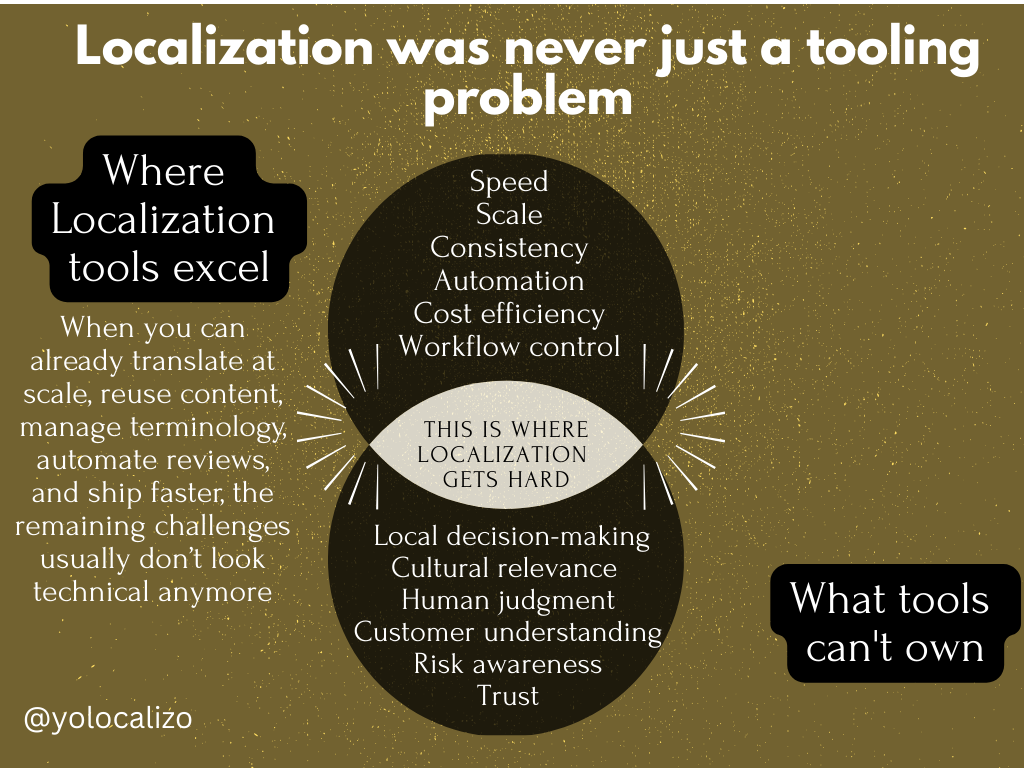
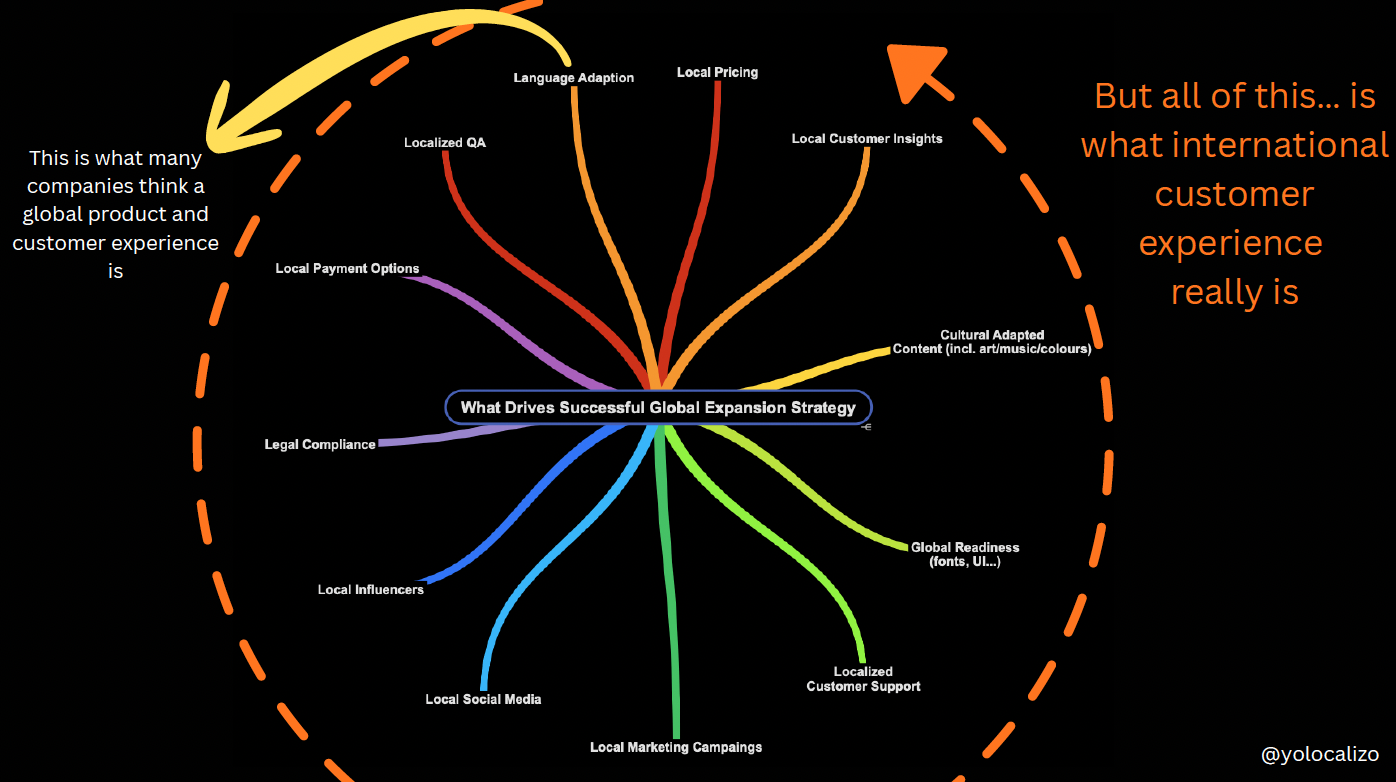
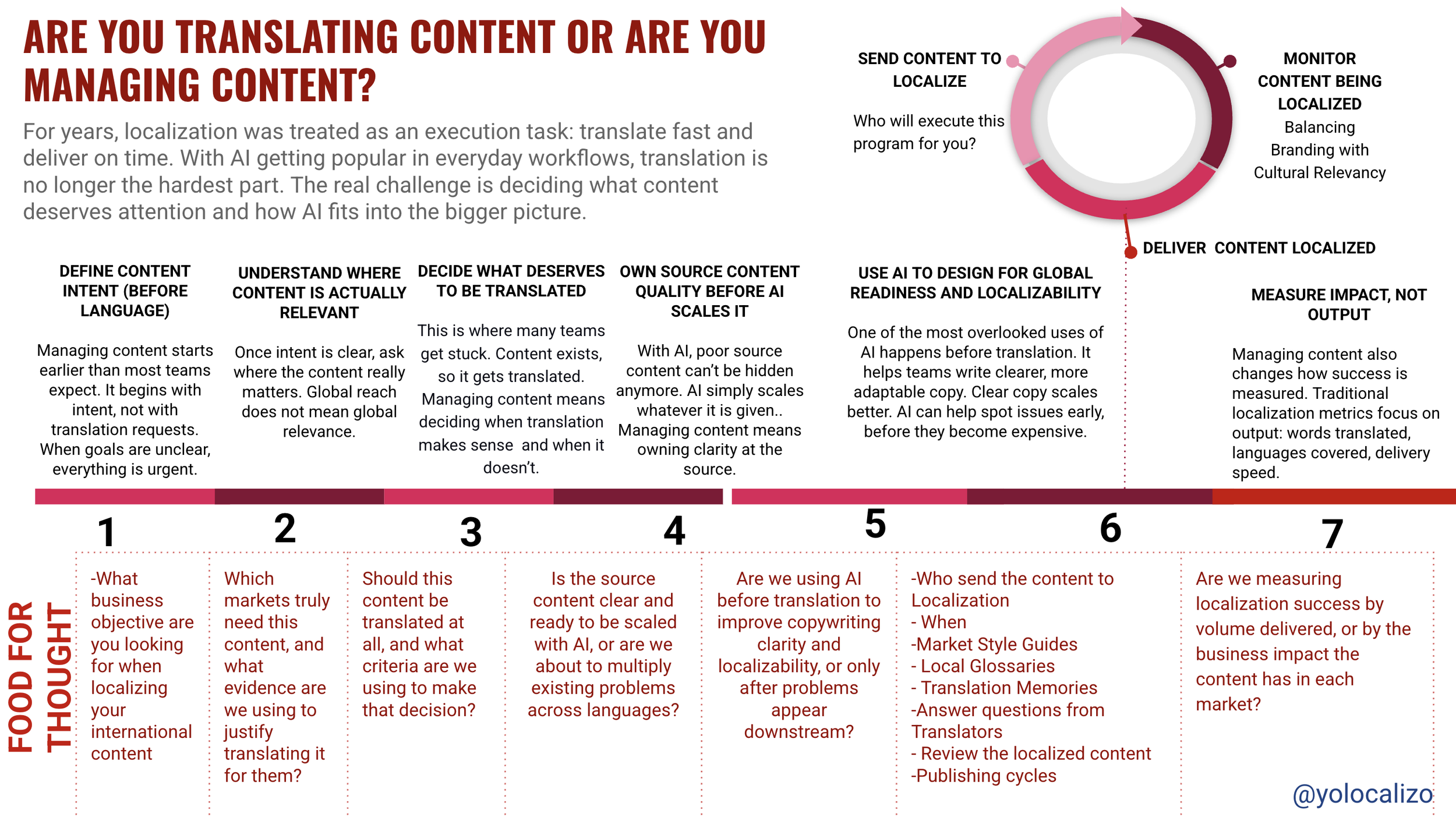

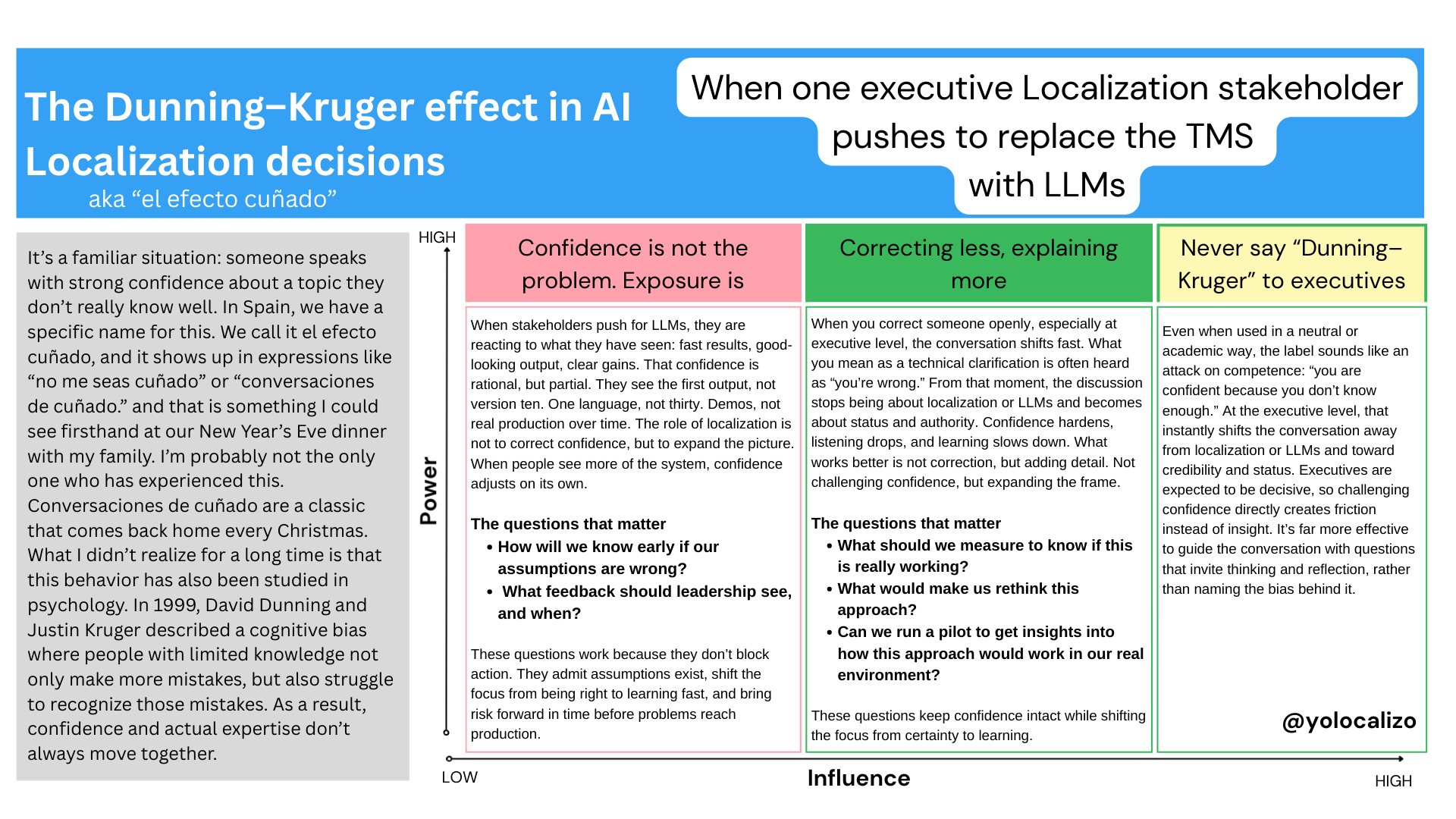


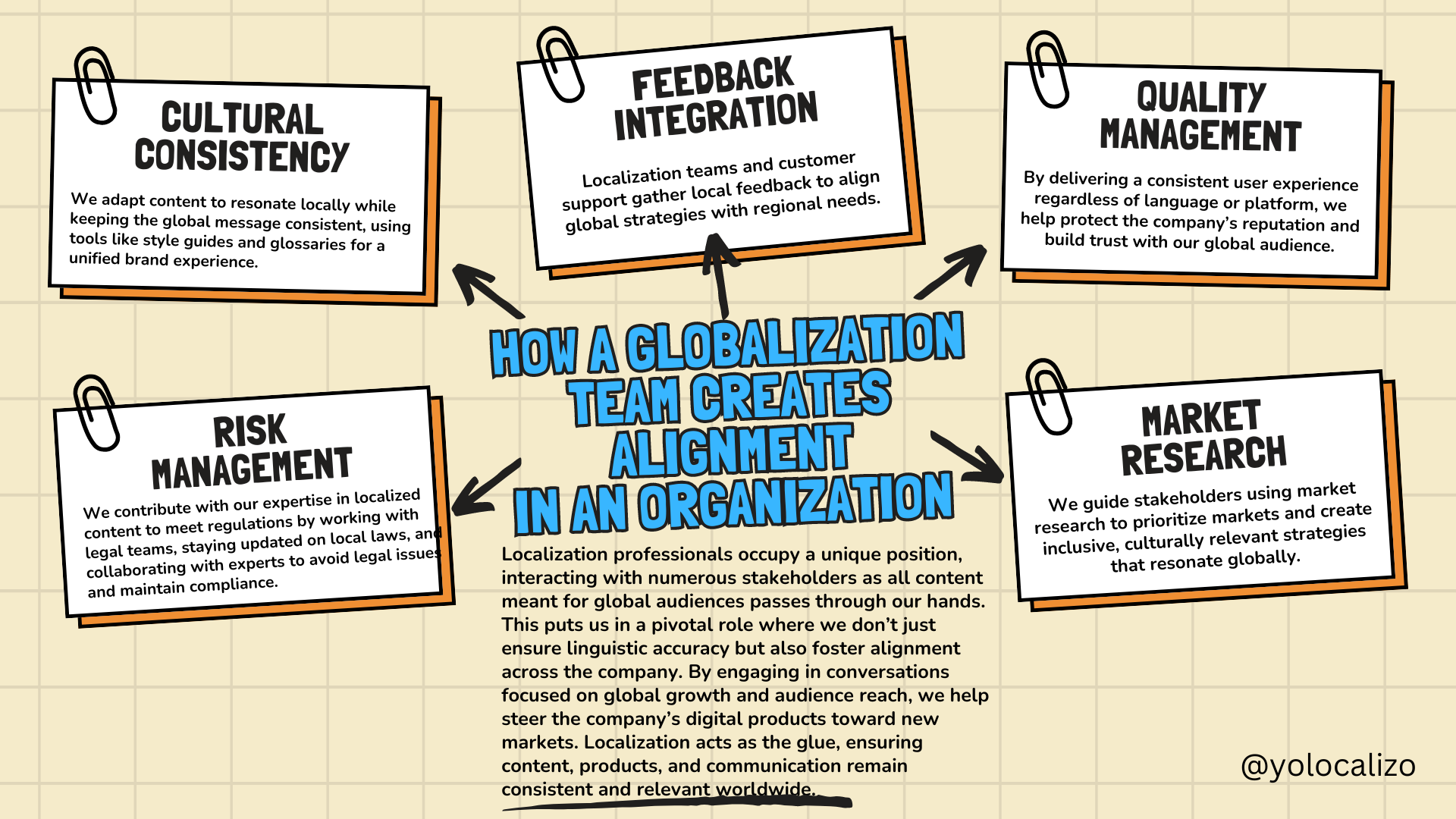



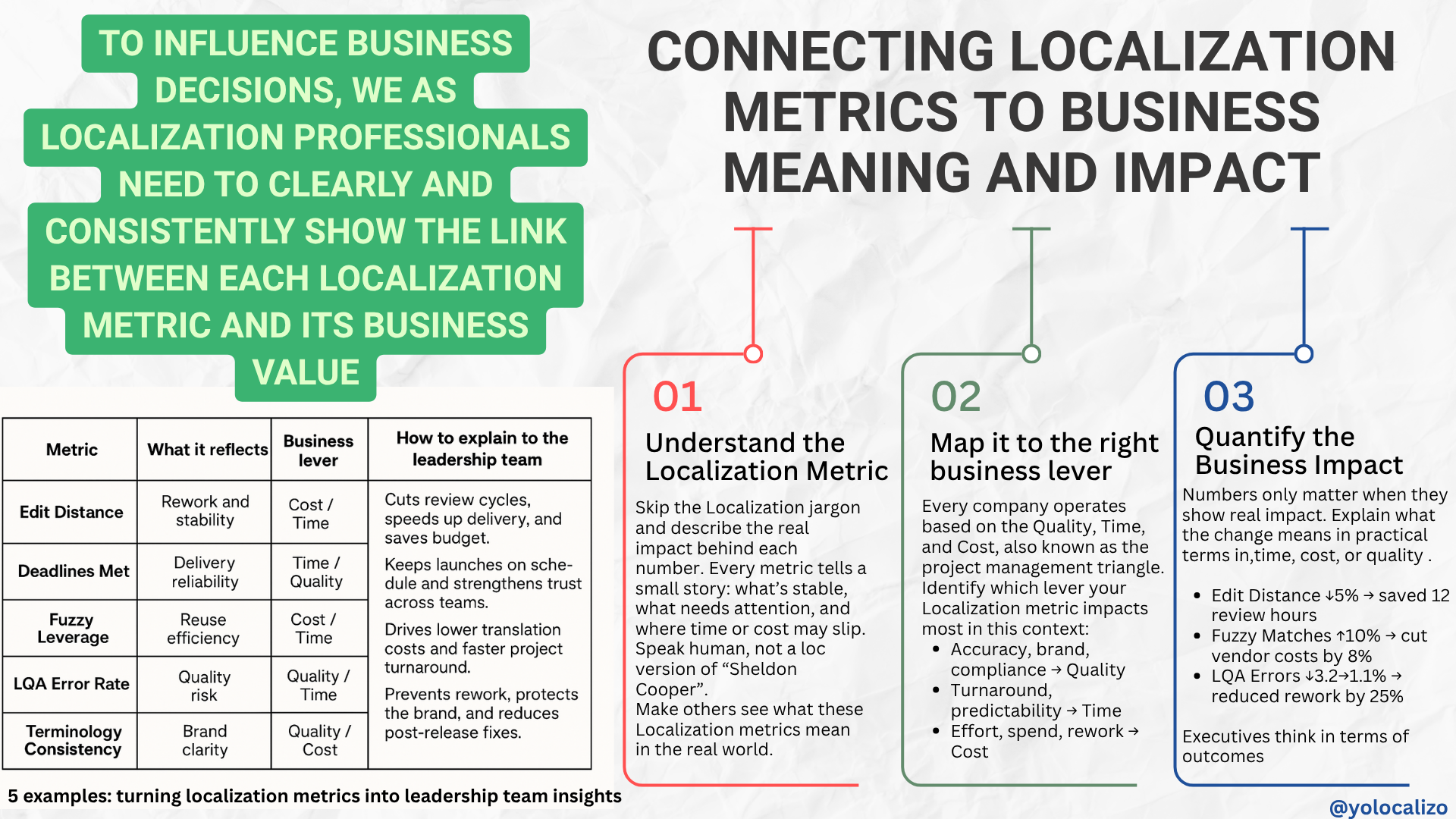

The world of localization is full of small, hidden details.
Some things are deeper than they seem, and I often see between in-context review and LQA in the world of Localization. They might seem the same, but if we scratch beneath the surface, we'll see they're not what they seem.
In this post, I want to focus on explaining the differences between in-context review and LQA, which is something I see being confused quite frequently, and although the tasks are similar ... they are not the same.